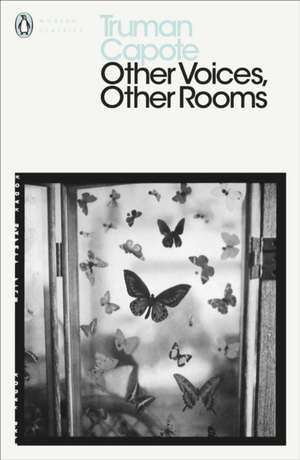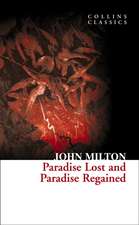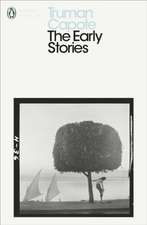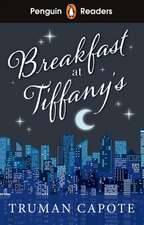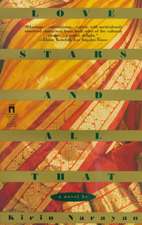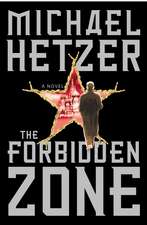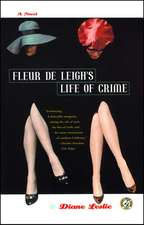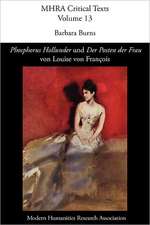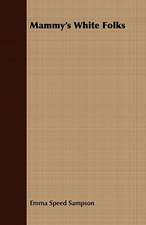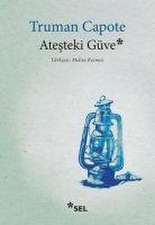Other Voices, Other Rooms: Penguin Modern Classics
Autor Truman Capote Introducere de John Berendten Limba Engleză Paperback – 26 mai 2004
| Toate formatele și edițiile | Preț | Express |
|---|---|---|
| Paperback (2) | 51.94 lei 21-33 zile | +17.06 lei 6-12 zile |
| Penguin Books – 26 mai 2004 | 51.94 lei 21-33 zile | +17.06 lei 6-12 zile |
| Vintage Publishing – 31 ian 1994 | 90.95 lei 3-5 săpt. |
Din seria Penguin Modern Classics
- 17%
 Preț: 41.41 lei
Preț: 41.41 lei -
 Preț: 82.90 lei
Preț: 82.90 lei -
 Preț: 80.98 lei
Preț: 80.98 lei - 15%
 Preț: 48.87 lei
Preț: 48.87 lei - 17%
 Preț: 52.07 lei
Preț: 52.07 lei - 19%
 Preț: 59.39 lei
Preț: 59.39 lei - 18%
 Preț: 46.05 lei
Preț: 46.05 lei - 17%
 Preț: 52.49 lei
Preț: 52.49 lei -
 Preț: 69.06 lei
Preț: 69.06 lei - 16%
 Preț: 58.66 lei
Preț: 58.66 lei - 17%
 Preț: 51.67 lei
Preț: 51.67 lei -
 Preț: 81.84 lei
Preț: 81.84 lei - 18%
 Preț: 46.25 lei
Preț: 46.25 lei -
 Preț: 97.20 lei
Preț: 97.20 lei - 17%
 Preț: 52.33 lei
Preț: 52.33 lei - 15%
 Preț: 48.90 lei
Preț: 48.90 lei - 16%
 Preț: 53.55 lei
Preț: 53.55 lei - 18%
 Preț: 51.39 lei
Preț: 51.39 lei -
 Preț: 63.28 lei
Preț: 63.28 lei - 16%
 Preț: 53.93 lei
Preț: 53.93 lei - 18%
 Preț: 51.00 lei
Preț: 51.00 lei - 15%
 Preț: 49.40 lei
Preț: 49.40 lei - 15%
 Preț: 55.26 lei
Preț: 55.26 lei - 16%
 Preț: 48.30 lei
Preț: 48.30 lei - 17%
 Preț: 52.10 lei
Preț: 52.10 lei -
 Preț: 81.61 lei
Preț: 81.61 lei - 17%
 Preț: 68.49 lei
Preț: 68.49 lei - 18%
 Preț: 46.25 lei
Preț: 46.25 lei - 18%
 Preț: 46.02 lei
Preț: 46.02 lei - 16%
 Preț: 42.26 lei
Preț: 42.26 lei - 17%
 Preț: 51.66 lei
Preț: 51.66 lei - 16%
 Preț: 48.45 lei
Preț: 48.45 lei - 16%
 Preț: 42.69 lei
Preț: 42.69 lei - 15%
 Preț: 54.63 lei
Preț: 54.63 lei - 18%
 Preț: 46.31 lei
Preț: 46.31 lei - 18%
 Preț: 46.31 lei
Preț: 46.31 lei - 16%
 Preț: 53.59 lei
Preț: 53.59 lei - 16%
 Preț: 53.11 lei
Preț: 53.11 lei -
 Preț: 95.04 lei
Preț: 95.04 lei - 16%
 Preț: 79.93 lei
Preț: 79.93 lei - 18%
 Preț: 46.02 lei
Preț: 46.02 lei - 16%
 Preț: 68.94 lei
Preț: 68.94 lei -
 Preț: 81.35 lei
Preț: 81.35 lei - 17%
 Preț: 51.60 lei
Preț: 51.60 lei - 18%
 Preț: 51.38 lei
Preț: 51.38 lei - 16%
 Preț: 53.36 lei
Preț: 53.36 lei - 18%
 Preț: 50.73 lei
Preț: 50.73 lei - 16%
 Preț: 48.46 lei
Preț: 48.46 lei - 16%
 Preț: 53.37 lei
Preț: 53.37 lei - 17%
 Preț: 52.33 lei
Preț: 52.33 lei
Preț: 51.94 lei
Preț vechi: 62.73 lei
-17% Nou
Puncte Express: 78
Preț estimativ în valută:
9.94€ • 10.38$ • 8.23£
9.94€ • 10.38$ • 8.23£
Carte disponibilă
Livrare economică 14-26 martie
Livrare express 27 februarie-05 martie pentru 27.05 lei
Preluare comenzi: 021 569.72.76
Specificații
ISBN-13: 9780141187655
ISBN-10: 0141187654
Pagini: 192
Dimensiuni: 129 x 198 x 11 mm
Greutate: 0.15 kg
Editura: Penguin Books
Colecția Penguin Classics
Seria Penguin Modern Classics
Locul publicării:London, United Kingdom
ISBN-10: 0141187654
Pagini: 192
Dimensiuni: 129 x 198 x 11 mm
Greutate: 0.15 kg
Editura: Penguin Books
Colecția Penguin Classics
Seria Penguin Modern Classics
Locul publicării:London, United Kingdom
Notă biografică
Truman Capote
Extras
One
Now a traveler must make his way to Noon City by the best means he can, for there are no buses or trains heading in that direction, though six days a week a truck from the Chuberry Turpentine Company collects mail and supplies in the next-door town of Paradise Chapel: occasionally a person bound for Noon City can catch a ride with the driver of the truck, Sam Radclif. It’s a rough trip no matter how you come, for these washboard roads will loosen up even brandnew cars pretty fast; and hitchhikers always find the going bad. Also, this is lonesome country; and here in the swamplike hollows where tiger lilies bloom the size of a man’s head, there are luminous green logs that shine under the dark marsh water like drowned corpses; often the only movement on the landscape is winter smoke winding out the chimney of some sorry-looking farmhouse, or a wing-stiffened bird, silent and arrow-eyed, circling over the black deserted pinewoods.
Two roads pass over the hinterlands into Noon City; one from the north, another from the south; the latter, known as the Paradise Chapel Highway, is the better of the pair, though both are much the same: desolate miles of swamp and field and forest stretch along either route, unbroken except for scattered signs advertising Red Dot 5¢ Cigars, Dr. Pepper, NEHI, Grove’s Chill Tonic, and 666. Wooden bridges spanning brackish creeks named for long-gone Indian tribes rumble like far-off thunder under a passing wheel; herds of hogs and cows roam the roads at will; now and then a farm-family pauses from work to wave as an auto whizzes by, and watch sadly till it disappears in red dust.
One sizzling day in early June the Turpentine Company’s driver, Sam Radclif, a big balding six-footer with a rough, manly face, was gulping a beer at the Morning Star Café in Paradise Chapel when the proprietor came over with his arm around this stranger-boy.
“Hiya, Sam,” said the proprietor, a fellow called Sydney Katz. “Got a kid here that’d be obliged if you could give him a ride to Noon City. Been trying to get there since yesterday. Think you can help?”
Radclif eyed the boy over the rim of his beer glass, not caring much for the looks of him. He had his notions of what a “real” boy should look like, and this kid somehow offended them. He was too pretty, too delicate and fair-skinned; each of his features was shaped with a sensitive accuracy, and a girlish tenderness softened his eyes, which were brown and very large. His brown hair, cut short, was streaked with pure yellow strands. A kind of tired, imploring expression masked his thin face, and there was an unyouthful sag about his shoulders. He wore long, wrinkled white linen breeches, a limp blue shirt, the collar of which was open at the throat, and rather scuffed tan shoes.
Wiping a mustache of foam off his upper lips, Radclif said: “What’s you name, son?”
“Joel. Jo-el Har-ri-son Knox.” He separated the syllables explicitly, as though he thought the driver deaf, but his voice was uncommonly soft.
“That so?” drawled Radclif, placing his dry beer glass on the counter. “A mighty fancy name, Mister Knox.”
The boy blushed and turned to the proprietor, who promptly intervened: “This is a fine boy, Sam. Smart as a whip. Knows words you and me never heard of.”
Radclif was annoyed. “Here, Katz,” he ordered, “fillerup.” After the proprietor trundled away to fetch a second beer, Sam said kindly, “Didn’t mean to tease you, son. Where bouts you from?”
“New Orleans,” he said. “I left there Thursday and got here Friday . . . and that was as far as I could go; no one come to meet me.”
“Oh, yeah,” said Radclif. “Visiting folks in Noon City?”
The boy nodded. “My father. I’m going to live with him.”
Radclif raised his eyes ceilingward, mumbled “Knox” several times, then shook his head in a baffled manner. “Nope, don’t think I know anybody by that name. Sure you’re in the right place?”
“Oh, yes,” said the boy without alarm. “Ask Mister Katz, he’s heard about my father, and I showed him the letters and . . . wait.” He hurried back among the tables of the gloomy café, and returned toting a huge tin suitcase that, judging by his grimace, was extremely heavy. The suitcase was colorful with faded souvenir stickers from remote parts of the globe: Paris, Cairo, Venice, Vienna, Naples, Hamburg, Bombay, and so forth. It was an odd thing to see on a hot day in a town the size of Paradise Chapel.
“You been all them places?” asked Radclif.
“No-o-o,” said the boy, struggling to undo a worn-out leather strap which held the suitcase together. “It belonged to my grandfather; that was Major Knox: you’ve read about him in history books, I guess. He was a prominent figure in the Civil War. Anyway, this is the valise he used on his wedding trip around the world.”
“Round the world, eh?” said Radclif, impressed. “Musta been a mighty rich man.”
“Well, that was a long time ago.” He rummaged through his neatly packed possessions till he found a slim package of letters. “Here it is,” he said, selecting one in a watergreen envelope.
Radclif fingered the letter a moment before opening it; but presently, with clumsy care, he extracted a green sheet of tissue-like paper and, moving his lips, read:
Edw. R. Sansom, Esq. Skully’s Landing May 18, 19—
My dear Ellen Kendall,
I am in your debt for answering my letter so quickly; indeed, by return post. Yes, hearing from me after twelve years must have seemed strange, but I can assure you sufficient reason prompted this long silence. However, reading in the Times-Picayune, to the Sunday issue of which we subscribe, of my late wife’s passing, may God the Almighty rest her gentle soul, I at once reasoned the honorable thing could only be to again assume my paternal duties, forsaken, lo, these many years. Both the present Mrs Sansom and myself are happy (nay, overjoyed!) to learn you are willing to concede our desire, though, as you remark, your heart will break in doing so. Ah, how well I sympathize with the sorrow such a sacrifice may bring, having experienced similar emotions when, after that final dreadful affair, I was forced to take leave of my only child, whom I treasured, while he was still no more than an infant. But that is all of the lost past. Rest assured, good lady, we here at the Landing have a beautiful home, healthful food, and a cultured atmosphere with which to provide my son.
As to the journey: we are anxious Joel reach here no later than June First. Now when he leaves New Orleans he should travel via train to Biloxi, at which point he must disembark and purchase a bus ticket for Paradise Chapel, a town some twenty miles south of Noon City. We have at present no mechanical vehicle; therefore, I suggest he remain overnight in P.C. where rooms are let above the Morning Star Café, until appropriate arrangements can be made. Enclosed please find a cheque covering such expenses as all this may incur.
Yrs. Respct. Edw. R. Sansom
The proprietor arrived with the beer just as Radclif, frowning puzzledly, sighed and tucked the paper back in its envelope. There were two things about this letter that bothered him; first of all, the handwriting: penned in ink the rusty color of dried blood, it was a maze of curlicues and dainty i’s dotted with daintier o’s. What the hell kind of a man would write like that? And secondly: “If your Pa’s named Sansom, how come you call yourself Knox?”
The boy stared at the floor embarrassedly. “Well,” he said, and shot Radclif a swift, accusing look, as if the driver was robbing him of something, “they were divorced, and mother always called me Joel Knox.”
“Aw, say, son,” said Radclif, “you oughtn’t to have let her done that! Remember, your Pa’s your Pa no matter what.”
The proprietor avoided a yearning glance for help which the boy now cast in his direction by having wandered off to attend another customer. “But I’ve never seen him,” said Joel, dropping the letters into his suitcase and buckling up the strap. “Do you know where this place is? Skully’s Landing?”
“The Landing?” Radclif said. “Sure, sure I know all about it.” He took a deep swallow of beer, let forth a mighty belch, and grinned. “Yessir, if I was your Pa I’d take down your britches and muss you up a bit.” Then, draining the glass, he slapped a half-dollar on the counter, and stood meditatively scratching his hairy chin till a wall clock sounded the hour four: “O.K., son, let’s shove,” he said, starting briskly towards the door.
After a moment’s hesitation the boy lifted his suitcase and followed.
“Come see us again,” called the proprietor automatically.
From the Hardcover edition.
Now a traveler must make his way to Noon City by the best means he can, for there are no buses or trains heading in that direction, though six days a week a truck from the Chuberry Turpentine Company collects mail and supplies in the next-door town of Paradise Chapel: occasionally a person bound for Noon City can catch a ride with the driver of the truck, Sam Radclif. It’s a rough trip no matter how you come, for these washboard roads will loosen up even brandnew cars pretty fast; and hitchhikers always find the going bad. Also, this is lonesome country; and here in the swamplike hollows where tiger lilies bloom the size of a man’s head, there are luminous green logs that shine under the dark marsh water like drowned corpses; often the only movement on the landscape is winter smoke winding out the chimney of some sorry-looking farmhouse, or a wing-stiffened bird, silent and arrow-eyed, circling over the black deserted pinewoods.
Two roads pass over the hinterlands into Noon City; one from the north, another from the south; the latter, known as the Paradise Chapel Highway, is the better of the pair, though both are much the same: desolate miles of swamp and field and forest stretch along either route, unbroken except for scattered signs advertising Red Dot 5¢ Cigars, Dr. Pepper, NEHI, Grove’s Chill Tonic, and 666. Wooden bridges spanning brackish creeks named for long-gone Indian tribes rumble like far-off thunder under a passing wheel; herds of hogs and cows roam the roads at will; now and then a farm-family pauses from work to wave as an auto whizzes by, and watch sadly till it disappears in red dust.
One sizzling day in early June the Turpentine Company’s driver, Sam Radclif, a big balding six-footer with a rough, manly face, was gulping a beer at the Morning Star Café in Paradise Chapel when the proprietor came over with his arm around this stranger-boy.
“Hiya, Sam,” said the proprietor, a fellow called Sydney Katz. “Got a kid here that’d be obliged if you could give him a ride to Noon City. Been trying to get there since yesterday. Think you can help?”
Radclif eyed the boy over the rim of his beer glass, not caring much for the looks of him. He had his notions of what a “real” boy should look like, and this kid somehow offended them. He was too pretty, too delicate and fair-skinned; each of his features was shaped with a sensitive accuracy, and a girlish tenderness softened his eyes, which were brown and very large. His brown hair, cut short, was streaked with pure yellow strands. A kind of tired, imploring expression masked his thin face, and there was an unyouthful sag about his shoulders. He wore long, wrinkled white linen breeches, a limp blue shirt, the collar of which was open at the throat, and rather scuffed tan shoes.
Wiping a mustache of foam off his upper lips, Radclif said: “What’s you name, son?”
“Joel. Jo-el Har-ri-son Knox.” He separated the syllables explicitly, as though he thought the driver deaf, but his voice was uncommonly soft.
“That so?” drawled Radclif, placing his dry beer glass on the counter. “A mighty fancy name, Mister Knox.”
The boy blushed and turned to the proprietor, who promptly intervened: “This is a fine boy, Sam. Smart as a whip. Knows words you and me never heard of.”
Radclif was annoyed. “Here, Katz,” he ordered, “fillerup.” After the proprietor trundled away to fetch a second beer, Sam said kindly, “Didn’t mean to tease you, son. Where bouts you from?”
“New Orleans,” he said. “I left there Thursday and got here Friday . . . and that was as far as I could go; no one come to meet me.”
“Oh, yeah,” said Radclif. “Visiting folks in Noon City?”
The boy nodded. “My father. I’m going to live with him.”
Radclif raised his eyes ceilingward, mumbled “Knox” several times, then shook his head in a baffled manner. “Nope, don’t think I know anybody by that name. Sure you’re in the right place?”
“Oh, yes,” said the boy without alarm. “Ask Mister Katz, he’s heard about my father, and I showed him the letters and . . . wait.” He hurried back among the tables of the gloomy café, and returned toting a huge tin suitcase that, judging by his grimace, was extremely heavy. The suitcase was colorful with faded souvenir stickers from remote parts of the globe: Paris, Cairo, Venice, Vienna, Naples, Hamburg, Bombay, and so forth. It was an odd thing to see on a hot day in a town the size of Paradise Chapel.
“You been all them places?” asked Radclif.
“No-o-o,” said the boy, struggling to undo a worn-out leather strap which held the suitcase together. “It belonged to my grandfather; that was Major Knox: you’ve read about him in history books, I guess. He was a prominent figure in the Civil War. Anyway, this is the valise he used on his wedding trip around the world.”
“Round the world, eh?” said Radclif, impressed. “Musta been a mighty rich man.”
“Well, that was a long time ago.” He rummaged through his neatly packed possessions till he found a slim package of letters. “Here it is,” he said, selecting one in a watergreen envelope.
Radclif fingered the letter a moment before opening it; but presently, with clumsy care, he extracted a green sheet of tissue-like paper and, moving his lips, read:
Edw. R. Sansom, Esq. Skully’s Landing May 18, 19—
My dear Ellen Kendall,
I am in your debt for answering my letter so quickly; indeed, by return post. Yes, hearing from me after twelve years must have seemed strange, but I can assure you sufficient reason prompted this long silence. However, reading in the Times-Picayune, to the Sunday issue of which we subscribe, of my late wife’s passing, may God the Almighty rest her gentle soul, I at once reasoned the honorable thing could only be to again assume my paternal duties, forsaken, lo, these many years. Both the present Mrs Sansom and myself are happy (nay, overjoyed!) to learn you are willing to concede our desire, though, as you remark, your heart will break in doing so. Ah, how well I sympathize with the sorrow such a sacrifice may bring, having experienced similar emotions when, after that final dreadful affair, I was forced to take leave of my only child, whom I treasured, while he was still no more than an infant. But that is all of the lost past. Rest assured, good lady, we here at the Landing have a beautiful home, healthful food, and a cultured atmosphere with which to provide my son.
As to the journey: we are anxious Joel reach here no later than June First. Now when he leaves New Orleans he should travel via train to Biloxi, at which point he must disembark and purchase a bus ticket for Paradise Chapel, a town some twenty miles south of Noon City. We have at present no mechanical vehicle; therefore, I suggest he remain overnight in P.C. where rooms are let above the Morning Star Café, until appropriate arrangements can be made. Enclosed please find a cheque covering such expenses as all this may incur.
Yrs. Respct. Edw. R. Sansom
The proprietor arrived with the beer just as Radclif, frowning puzzledly, sighed and tucked the paper back in its envelope. There were two things about this letter that bothered him; first of all, the handwriting: penned in ink the rusty color of dried blood, it was a maze of curlicues and dainty i’s dotted with daintier o’s. What the hell kind of a man would write like that? And secondly: “If your Pa’s named Sansom, how come you call yourself Knox?”
The boy stared at the floor embarrassedly. “Well,” he said, and shot Radclif a swift, accusing look, as if the driver was robbing him of something, “they were divorced, and mother always called me Joel Knox.”
“Aw, say, son,” said Radclif, “you oughtn’t to have let her done that! Remember, your Pa’s your Pa no matter what.”
The proprietor avoided a yearning glance for help which the boy now cast in his direction by having wandered off to attend another customer. “But I’ve never seen him,” said Joel, dropping the letters into his suitcase and buckling up the strap. “Do you know where this place is? Skully’s Landing?”
“The Landing?” Radclif said. “Sure, sure I know all about it.” He took a deep swallow of beer, let forth a mighty belch, and grinned. “Yessir, if I was your Pa I’d take down your britches and muss you up a bit.” Then, draining the glass, he slapped a half-dollar on the counter, and stood meditatively scratching his hairy chin till a wall clock sounded the hour four: “O.K., son, let’s shove,” he said, starting briskly towards the door.
After a moment’s hesitation the boy lifted his suitcase and followed.
“Come see us again,” called the proprietor automatically.
From the Hardcover edition.
Recenzii
“Intense, brilliant . . . . Capote has an astonishing command . . . a magic all his own.” —The Atlantic
“Truman Capote is the most perfect writer of my generation.” —Norman Mailer
“Dazzling.” —Chicago Tribune
“Truman Capote is the most perfect writer of my generation.” —Norman Mailer
“Dazzling.” —Chicago Tribune
